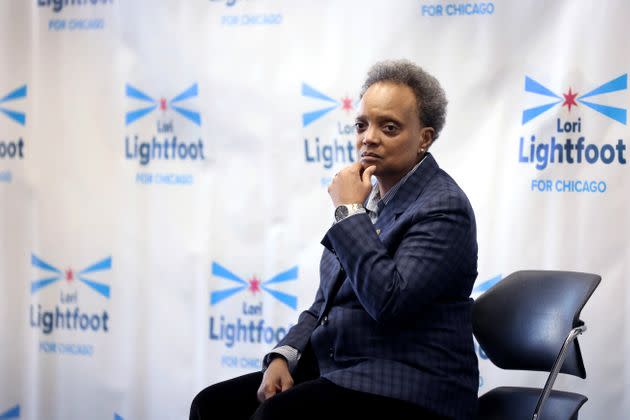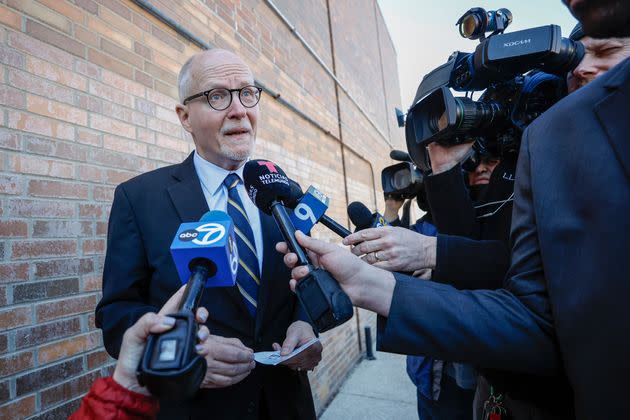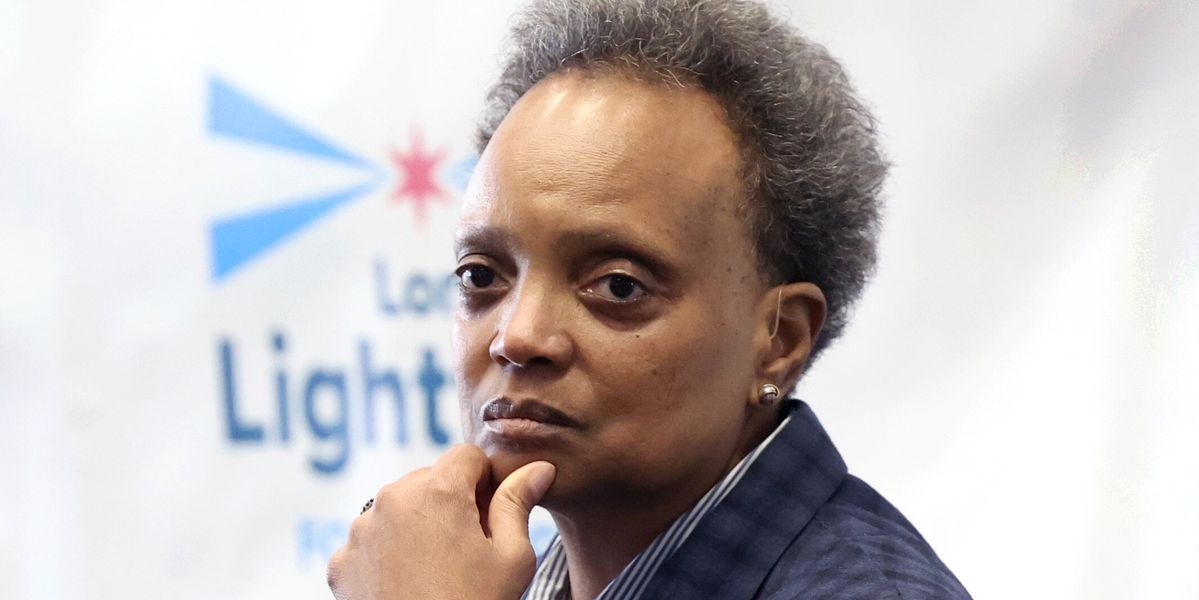
Chicago Mayor Lori Lightfoot had asked voters for another four years to continue her work to reduce crime and invest in underserved neighborhoods. They didn’t give it to her.
mayor of Chicago Lori Lightfoot lost her bid for a second term on Tuesday after failing to secure one of the top two spots in the city’s nonpartisan mayoral race.
Since none of the nine mayoral candidates won an outright majority in the first round of voting, the two highest voters will compete for control of City Hall in a runoff on April 4.
Paul Vallas, the centrist, ex-CEO of Chicago Public Schools and the field’s only white candidate, is now in a strong position to accept the top spot after finishing in first place on Tuesday.
Lightfoot’s defeat is a blow to supporters who celebrated her victory as the city’s first black woman and openly gay person to serve as mayor.
The result also reflects the fierce challenges facing major city mayors following the turmoil of the COVID-19 pandemic, the civil unrest following the May 2020 murder of George Floyd, and a concomitant rise in gun violence and other crimes.
Lightfoot unsuccessfully tried to convince voters that the city had turned the corner under her leadership and that her impeachment would slow progress in lifting underprivileged neighborhoods.
“What we’ve done through the biggest challenges this city has probably faced since the Great Fire [of 1871] is that we continued our march toward equality and inclusion and justice,” she stated at a Feb. 9 press conference with black clergy supporting her re-election. And we’re not going back. We’re not giving up. We will forge ahead.”
Lightfoot is Chicago’s first incumbent mayor to lose an election since 1989 Eugene SawyerWHO was appointed after the sudden death of then-mayor Harold Washington in 1987, he lost his bid for a full term. Jane ByrneChicago’s first female mayor was the city’s most recent chosen mayor only to lose her race when she failed to win a second term in 1983.
With the support of the Fraternal Order of Police, Chicago’s police union, Vallas presented the best alternative to Lightfoot’s leadership for voters concerned about crime and public safety.
He claimed additional funding and a new mayor trusted by police officers could help slow “the exodus” of officers from the city and close the Chicago Police Department’s backlog of 1,600 compared to 2019 staffing levels.
“This election is about leadership, a leadership crisis, because every problem the city is experiencing — from a deteriorating police department, deteriorating schools, or ever-increasing property taxes, fines and fees — is really the product of bad decisions from the fifth floor,” he said during a candidate debate on Feb. 9, referring to the floor of Chicago City Hall that the mayor occupies. “It didn’t start with this mayor, but it’s definitely gotten worse.”

Chicago mayoral candidate and former Chicago Public Schools CEO Paul Vallas speaks with the media member after casting his vote on February 28, 2023.
Lightfoot also faced the exhaustion of the public with her penchant for personal squabbles often dominating the headlines. She has been at odds with the city’s right-wing police union as well as the progressive teachers’ union, a diverse array of city council members, and even the owners of professional football’s Chicago Bears, who have threatened to leave the city.
Indeed, at times Lightfoot seemed to be under siege by critics of her ideologically left and ideologically right without the relationships in the middle of the spectrum to anchor her.
“Where is her base anywhere in Chicago?” U.S. Representative Jesús “Chuy” García (D-Ill.), one of Lightfoot’s challengers, asked HuffPost in a Feb. 9 interview. “It’s not in the black community where you would think there would be a strong base. It’s not in the more progressive parts of Chicago today.”
Lightfoot’s reputation for bitterness, combined with the city’s continued property crime even after homicides peaked in 2021, cost her the support of upper-middle-class white voters who propelled her initial bid for reform in 2019.
Linda Buckley, a retired businesswoman from River North, had supported Lightfoot in the first round of voting in 2019, but told HuffPost in mid-February that she was choosing between Vallas and García.
“I don’t think she’s good with people,” Buckley said.
Lightfoot lamented the sexism and racism that she felt marked this kind of criticism of her style of government. And in the final weeks of her bid, she searched relentlessly for it rally Black Chicagoans by her side and warned them of the consequences of losing one of them at the helm.
Some local residents heeded her call.
“She has been very clear about her intent to help build and help bring black communities and those in need to the table where her predecessors have excluded us,” said Rev. Cy Fields, pastor of a West Side Baptist church. said at the Feb. 9 press conference in support of Lightfoot’s re-election.
But her task was complicated by the presence of six other black candidates on the ballot, including Cook County Commissioner Brandon Johnson. Johnson, a former organizer of the Chicago Teachers Union backed by his former employer, joined other progressives in accusing Lightfoot of failing to deliver on promised changes to the city’s police, mental health and public school systems.
“We’ve had mayors who … have capitulated over and over again to the ultra-rich, billionaires and big business,” Johnson told HuffPost in a mid-February interview. “And look how much desperation it has caused!”
Lightfoot offered a road map to other Chicago liberals to defeat Vallas in the second round. In ads and on the stump, Lightfoot called Vallas, a self-described “lifelong Democrat,” a “Republican” whose efforts to address conservative white voters’ fears of crime were the “ultimate dog whistle.”
Vallas has some ammunition to push back those claims. He told HuffPost that as a Republican he only considered running for county office in 2009 so he wouldn’t have to contend with the grip of the Chicago machine.
But Vallas’ ties to right-wing groups like the Fraternal Order of Police have already given him headaches. He has at the end of February denounced the union’s decision to host Florida Governor Ron DeSantis (R) for a speech to its members.
Vallas’ history as a champion of charter schools and an enemy of teacher unions is probably enough in itself to unite much of progressive Chicago against him.
“Vallas is bad for Chicago,” said Stephanie Gadlin, a former Chicago Teachers Union official who supported García.
Gadlin chose him, adding, “Would be like hiring Count Dracula to run the blood bank.”

